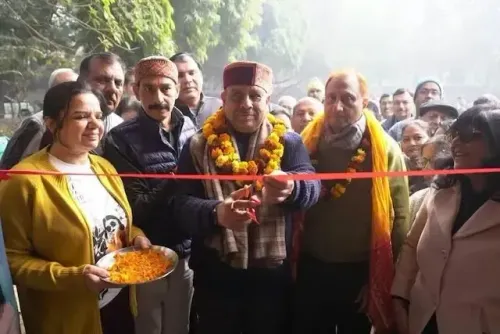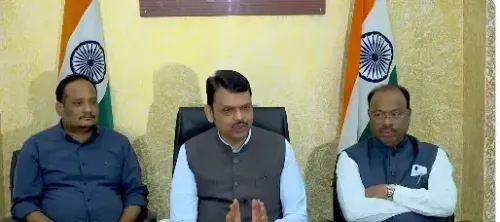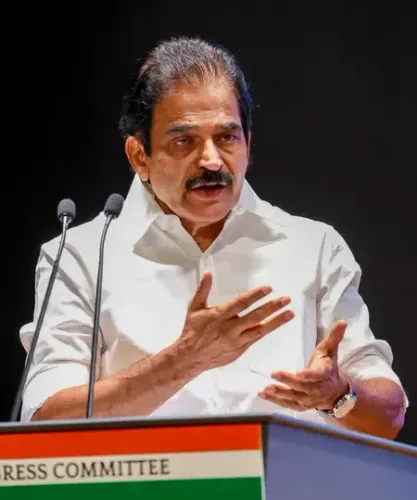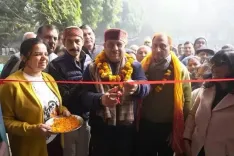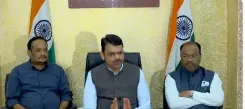What Mistakes Led to the Recent Terror Attack in Pahalgam?
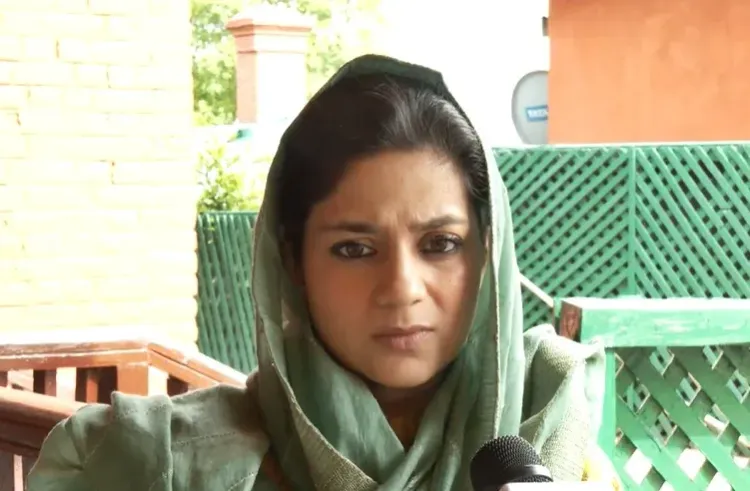
Synopsis
Key Takeaways
- Investigation: A thorough investigation is needed into the Pahalgam terror attack.
- Media Representation: Iltija Mufti defends her mother against negative media portrayals.
- Humanity in Politics: Emphasizes the importance of humane treatment in government actions.
- Waqf Act Concerns: Critiques the Waqf (Amendment) Act as detrimental to Muslim rights.
- Integration Issues: Advocates for emotional integration beyond just geographical changes.
Srinagar, May 6 (NationPress) Iltija Mufti, the daughter of PDP leader Mehbooba Mufti, remarked that the recent terrorist attack in Pahalgam, a popular tourist destination in Jammu and Kashmir, reflects a significant oversight that warrants thorough investigation.
In her interview with IANS, Iltija expressed admiration for her mother, describing her as deeply committed to peace, while criticizing media narratives that label her as anti-India or non-secular.
She discussed not only the Pahalgam attack but also broader issues, including border tensions, the repatriation of Pakistani nationals, the Waqf (Amendment) Act, and J&K Chief Minister Omar Abdullah's recent meeting with Prime Minister Narendra Modi.
The interview highlights several key points:
IANS: The Pahalgam incident resulted in the tragic loss of 26 innocent lives. What is your perspective on this?
Iltija Mufti: This attack was reprehensible, and we unequivocally reject violence. The killing of tourists, including two newlywed women who lost their husbands, is heartbreaking. We are human beings first, and such targeted killings deeply distress us.
IANS: Who is accountable for this attack? Do you suspect Pakistan's involvement?
Iltija Mufti: Since the abrogation of Article 370 six years ago, law and order in Jammu and Kashmir has been managed by the Ministry of Home Affairs, making it challenging for me to comment. The central government in Delhi must clarify this situation. It's premature to assign blame without a comprehensive investigation.
Tourist hotspots like Pahalgam and Baisaran attract numerous visitors daily, making this attack particularly alarming and indicative of some failure that needs investigation. I lack the authority to determine culpability, but it is clear that some error occurred, leading to this grave incident.
IANS: Mehbooba Mufti visited Pahalgam and engaged with locals. What are your thoughts on that?
Iltija Mufti: The portrayal of Mehbooba ji by the media, especially the so-called 'godi' media, as anti-India or non-secular, is misguided. Her visit was vital, not only for local residents but also to assure tourists of our continued hospitality. The visuals of her interaction with tourists reflect our commitment to welcoming visitors.
Some media outlets suggest that tourists are unwelcome in Jammu and Kashmir, which is entirely false. Our hearts and doors remain open for tourists, and we will continue to extend our warm hospitality.
IANS: In light of the attack, Pakistani nationals are being returned. What is your stance on this?
Iltija Mufti: Many individuals have resided here for decades, including a Pakistani woman whose son was martyred serving in the CRPF. Examining this through a humanitarian lens reveals injustices occurring. The government is taking necessary actions, but we must also approach these matters with compassion.
IANS: What are your thoughts on the dismissal of a CRPF personnel due to his marriage to a Pakistani woman?
Iltija Mufti: I am not well-acquainted with this case. If the police are withholding details, it is beyond my purview. I did see the soldier's interview, where he stated that he had informed the CRPF and security agencies. This matter pertains to an individual CRPF soldier, and an investigation is underway.
IANS: Do you consider war a viable solution?
Iltija Mufti: Discussions of war invariably impact the people of Jammu and Kashmir, as we are situated at a border. We bear the brunt of such conflicts. However, certain actions are outside our control. If the government feels it must act in self-defense to maintain order and national security, that is its prerogative. Personally, I believe war should never be an option. PM Modi once said, 'The era of war is over,' and I think we should uphold that sentiment.
IANS: Congress leader Charanjit Singh Channi has raised concerns about the Indian armed forces' surgical strikes and criticized the government's response. What is your view?
Iltija Mufti: Such inflammatory comments are inappropriate, especially at a time when many lives have been lost. Politicians should exhibit sensitivity in their statements. Why engage in trivial rhetoric when our people are mourning?
IANS: You and your mother have highlighted the harassment faced by Kashmiris across India following the Pahalgam attack. What is your perspective?
Iltija Mufti: As a Kashmiri, I am disheartened. There is widespread suspicion directed at every Kashmiri in India. Our students and businesspeople, even in Delhi, are facing discrimination. PM Modi must engage with Kashmiris, as we have been left to fend for ourselves. Since 2019, the humiliation we have endured and the treatment of Muslims are truly disheartening.
PM Modi is not merely the Prime Minister of Hindus; he is also the Prime Minister for Muslims, Sikhs, Christians, Buddhists, and every citizen of India. He must rise to the occasion and protect us. The situation in Kashmir over the past six years is profoundly disappointing.
IANS: What are your thoughts on the Waqf (Amendment) Act?
Iltija Mufti: The narrative surrounding the repeal of Article 370 misled the public regarding its intentions for Jammu and Kashmir's development. This was a deceptive narrative laden with propaganda. Since the passage of the Waqf (Amendment) Act, which is currently under judicial review, many madrasas and dargahs are being demolished. This Act appears aimed at disempowering Muslims and seems to be a strategy to gain votes by targeting mosques. Such short-sighted political maneuvers may yield temporary gains but ultimately assault the essence of our nation. This is Gandhiji's country, and I view the Waqf Act as a direct attack on Muslims, aiming to strip them of their limited freedoms and religious autonomy.
IANS: What is your perspective on J&K Chief Minister Omar Abdullah's meeting with PM Modi and his remarks in the Assembly?
Iltija Mufti: Since 2019, the people of Jammu and Kashmir have experienced significant losses. We must unite for a greater cause. The demand for statehood propagated by the NC aligns with the BJP's narrative. The NC did not address the Waqf Act during the Assembly session, nor did BJP MLAs. If the NC merely echoes the BJP's stance, it raises the question of why the electorate should choose 50 MLAs. If the NC is only going to support the BJP's narrative, then they are betraying the people of J&K.
IANS: An Over Ground Worker (OGW) who assisted the Pahalgam attackers jumped into a river while being taken to identify a terrorist hideout. What are your thoughts on this?
Iltija Mufti: Those responsible for the attack must face justice. Families of the victims deserve accountability. However, the label of OGW or accusations often stem from narratives pushed by security agencies and may not always be substantiated. We have witnessed instances of injustice.
While not all police officers are in error, there have been instances of fabricated encounters, as seen in Bandipore, Kupwara, and even Rajouri-Poonch two years ago. The narrative conveyed is not always accurate.
Recently, in Pulwama, 10–15 homes were demolished, with only one linked to a suspected militant; the rest belonged to innocent civilians. I am grateful to Mehbooba Mufti for advocating on behalf of those affected, which led to the cessation of demolitions. The government cannot label everyone as militants or OGWs.
Initially, it was stated that the integration of J&K occurred post-2019. However, integration transcends geographical and border considerations; it also encompasses emotional and psychological dimensions. If residents are viewed with suspicion and animosity, as extremists or OGWs, how can we bridge the gap between Kashmir and Delhi?


